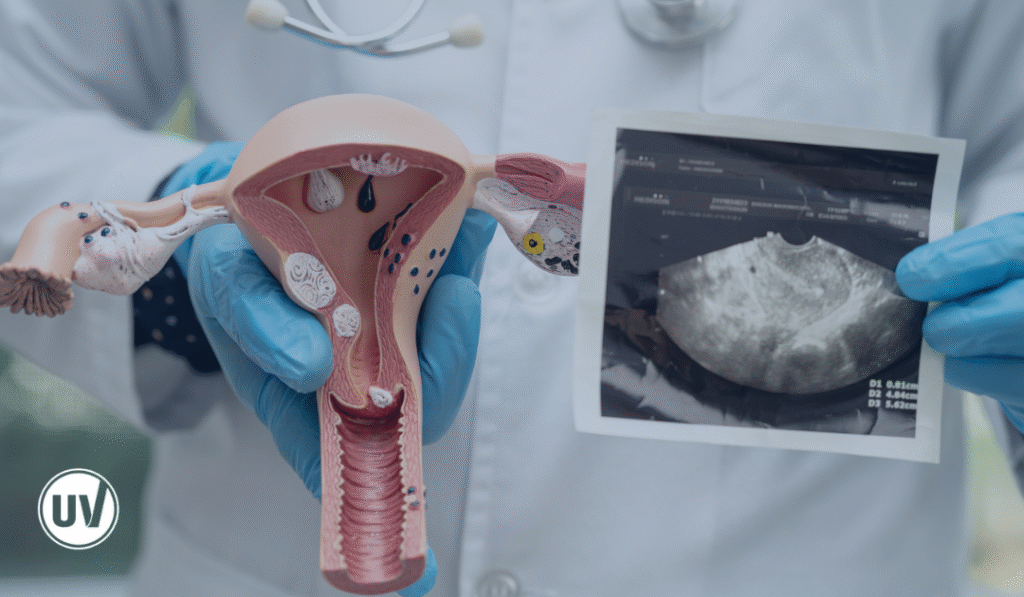Uterine fibroids are non-cancerous growths that develop in or on the uterus. While common, their growth patterns can be unpredictable—some fibroids remain the same size for years, while others seem to grow rapidly. So, do fibroids grow fast, and when should you be concerned?
How Fast Do Fibroids Grow?
Fibroids grow at different rates for every woman. Some may stay small (less than an inch) for years, while others can increase in size more quickly—especially during certain hormonal phases, such as pregnancy or perimenopause.
On average, research shows fibroids may grow about 9% per year, but many remain stable or even shrink after menopause due to decreased estrogen and progesterone levels.
Factors that may influence fibroid growth include:
- Hormonal fluctuations (especially estrogen and progesterone)
- Genetics and family history
- Obesity and metabolic factors
- Pregnancy
- Lifestyle and stress levels
Signs Your Fibroids May Be Growing
If your fibroids are growing, you may notice changes in your symptoms over time.
Common signs of fibroid growth include:
- Heavier or longer menstrual bleeding
- Increased pelvic pressure or bloating
- More frequent urination
- Pain during intercourse
- Enlargement of the abdomen
Tracking your symptoms can help your doctor determine whether your fibroids are stable or increasing in size.
Do Fibroids Always Keep Growing?
Not necessarily. Many fibroids grow slowly or remain unchanged for years. Others may shrink naturally after menopause when hormone levels drop. However, fibroids stimulated by high hormone levels—such as during pregnancy or hormone therapy—can grow more quickly.
It’s important to remember that rapid growth doesn’t automatically mean something dangerous, but monitoring is key to rule out rare conditions like leiomyosarcoma (a cancerous tumor).
Can You Slow or Stop Fibroid Growth?
While you can’t always prevent fibroids, managing hormone levels and maintaining a healthy lifestyle may help reduce growth. Non-surgical treatment options like Uterine Fibroid Embolization (UFE) can also shrink existing fibroids and relieve symptoms—without surgery or hospital stays.
When to See a Fibroid Specialist
If you notice your symptoms worsening or your abdomen enlarging, it’s time to speak with a specialist. Early diagnosis and treatment can help prevent complications and improve your quality of life.
At USA Fibroid Centers, our experienced doctors offer Uterine Fibroid Embolization (UFE)—a safe, minimally invasive procedure that targets fibroid growth directly by blocking blood flow to the fibroid, causing it to shrink.
Take Control of Your Fibroid Health
Fibroids don’t always grow fast, but staying informed and proactive is the best way to manage them.
If you’re noticing symptoms or changes in your body, don’t wait.






